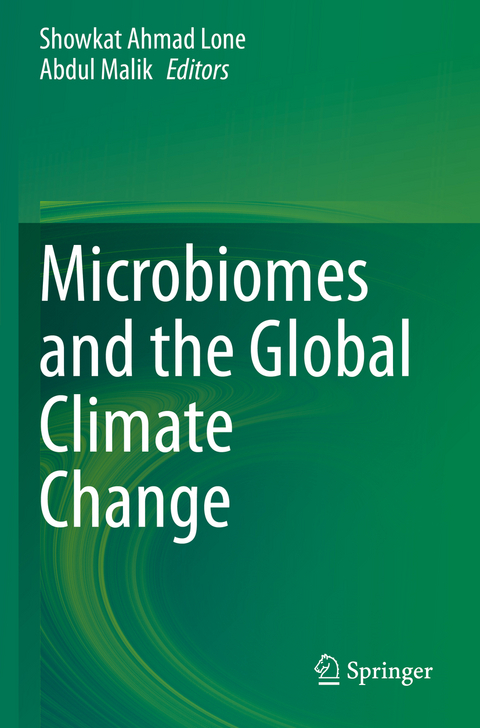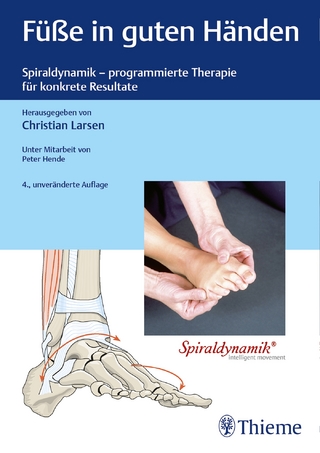
Microbiomes and the Global Climate Change
Springer Verlag, Singapore
978-981-334-510-2 (ISBN)
The book describes the ecological significance of microbiomes associated with the kingdoms Plantae and Animalia with respect to climate change, natural and anthropogenic causes of climate change, microbial interactions in nature, planetary microbiomes and food security, climate change in relation to disease epidemiology and human health and engineering microorganisms to mitigate the consequences of climate change. The individual chapters in the intended book provide both theoretical and practical exposure to the current issues and future challenges of climate change in relation to the microbiomes.
This collection should serve as ready reference to the researchers working in the area to reshape their future research in addressing the challenges of global climate change.
Dr. Showkat Ahmad Lone is an Assistant Professor in Microbiology at Centre of Research for Development (CORD), University of Kashmir, Srinagar since July 2017. He has been awarded various fellowships during Ph.D. Dr. Lone has presented papers in many international conferences and has received a number of best paper awards including one “Young Scientist Award” by Bacillus ACT Steering committee, United States for his significant contribution in Bacillus thuringiensis research. Dr. Lone has published his research in highly reputed international journals. His major area of research is molecular microbiology and microbial ecology. Dr. Abdul Malik is Professor and Chairman,Department of Agricultural Microbiology at Aligarh Muslim University, Aligarh, India and has teaching and research experience of more than 25 years. Prof.Malik has been awarded several International fellowships, awards and honors including DBT CREST Awards of Govt. of India, DAAD fellowship(Germany), Visiting Fellowship of TUBITAK, Turkey,BOYSCAST overseas fellowship etc. He has collaborative research projects with TU-Berlin, Germany, University of Minho, Braga, Portugal, and University of Strathclyde, Glasgow (UK). He has received research grants from several funding agencies of the Govt. of India including DST, CSIR, UGC as Principal Investigator. He has edited nine books published by the leading international Publishers. His major areas of research are environmental microbiology, ecotoxicology, and agricultural microbiology.
Part 1. Climate Change and Microbial Ecology.- Chapter 1. Microbes and Climate: A tangled relation.- Chapter 2. Carbon sequestration in aquatic system using Microbial pump.- Chapter 3. Climate change extenuation by green house gas quenching microflora.- Chapter 4. Role of Methanotrophs in Mitigating Global Warming.- Chapter 5. Paradigm Ecological Shift and Succession in Microbiomes – A Climatic Advent.- Chapter 6. Exploring the diversity of marine microbiome in response to changes in the environment.- Chapter 7. Polar microbes as climate resilient pathways for mitigation of climate change.- Part 2. Climate Change and pathogens.- Chapter 8. Climate change and population health.- Chapter 9. Impact of Climate Change on the Incidence and Transfer of Food and Water borne Diseases.- Chapter 10. Climate change: any dangers from antimicrobial resistant bacteria? .- Chapter 11. Phyllosphere Microbiome: Plant defense strategies.- Part 3. Climate Change and Agriculture.- Chapter Chapter 12. Understanding Methanogens, Methanotrophs and Methane Emission in Rice Ecosystem.- Chapter 13. Soil micro-flora and its role in diminution of global climate change.- Chapter 14. Role of microorganisms in plant adaptation towards climate change for sustainable agriculture.- Chapter 15. Novel approaches for genome editing to develop climate smart crops.- Part 4. Climate change and the Environmental Microbiology.- Chapter 16. Role of soil microbial flora in remediation of hydrocarbon stressed soils.- Chapter 17. Biosurfactant Producing Bacteria as Potent Scavengers of Petroleum Hydrocarbons.- Chapter 18. Potent biotechnological applications of psychrozymes.- Chapter 19. Role of Green Nanotechnology in Alleviating Climate Change.
| Erscheinungsdatum | 07.07.2022 |
|---|---|
| Zusatzinfo | 33 Illustrations, color; 8 Illustrations, black and white; XIII, 374 p. 41 illus., 33 illus. in color. |
| Verlagsort | Singapore |
| Sprache | englisch |
| Maße | 155 x 235 mm |
| Themenwelt | Medizin / Pharmazie ► Physiotherapie / Ergotherapie ► Orthopädie |
| Naturwissenschaften ► Biologie ► Ökologie / Naturschutz | |
| Technik ► Medizintechnik | |
| Schlagworte | bioremediation • climate change • ecologically important microbes • microbial ecology • planetary microbiome • sustainability |
| ISBN-10 | 981-334-510-1 / 9813345101 |
| ISBN-13 | 978-981-334-510-2 / 9789813345102 |
| Zustand | Neuware |
| Informationen gemäß Produktsicherheitsverordnung (GPSR) | |
| Haben Sie eine Frage zum Produkt? |
aus dem Bereich


